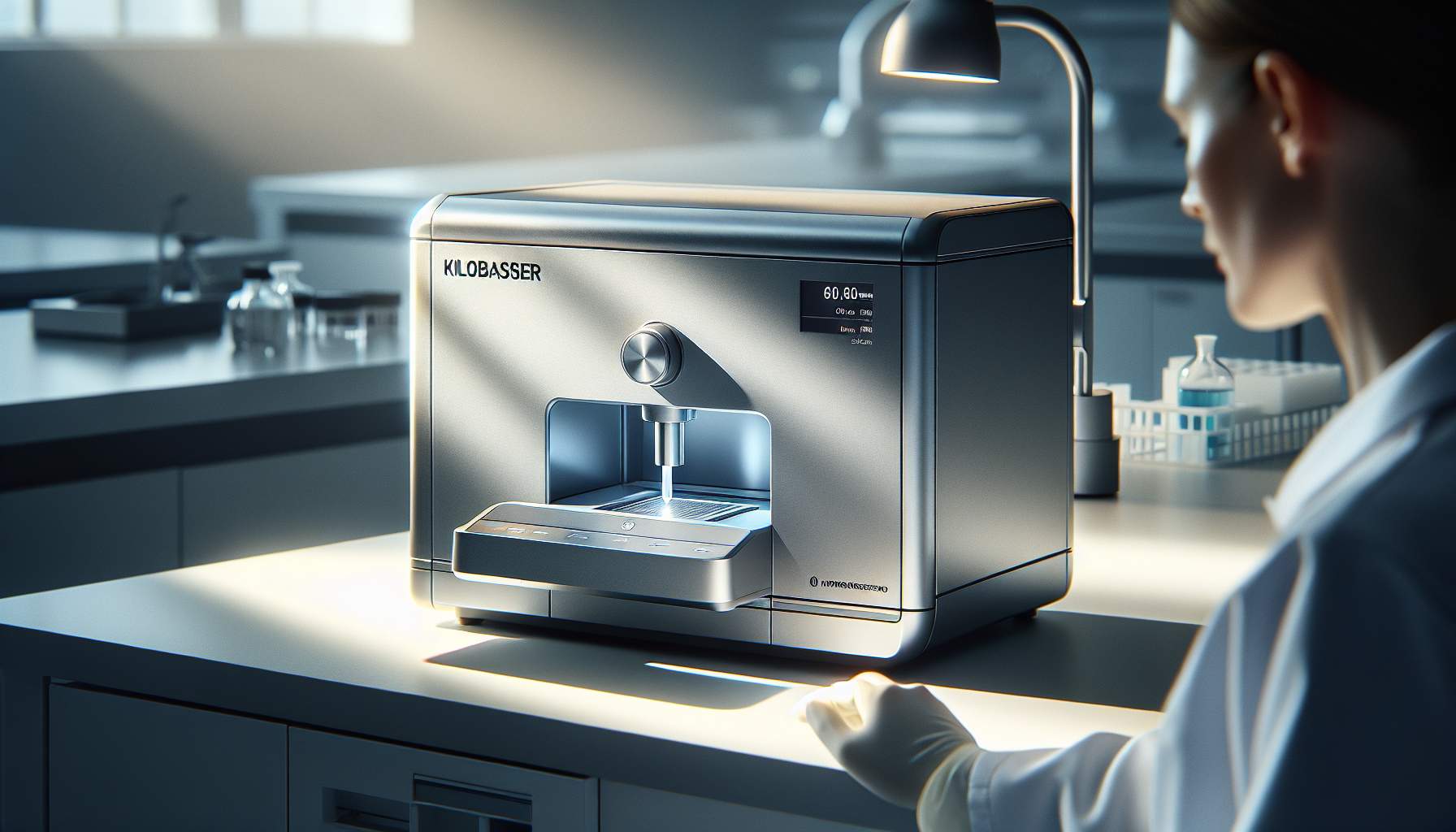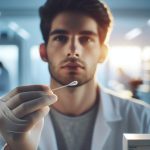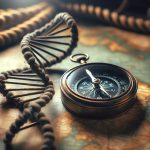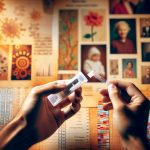In a recent chat, Kilobaser‘s head honcho, Alexander Murer, spilled the beans on their groundbreaking device that’s turning heads in the DNA research field. Think about whipping up a cup of joe; that’s how effortless they’ve made crafting DNA oligos with this gear – right there on your workbench and all wrapped up within an hour. And here’s the kicker: you don’t need to be a rocket scientist or have any fancy training to get it done. This gizmo isn’t just cool; it’s revolutionizing how researchers play around with DNA, making what once seemed like sci-fi a reality in today’s labs.
The origin and development of Kilobaser: How it started and its progress
In Graz, Austria, while I was deeply immersed in the study of molecular biology, my passion leaned more towards tangible work rather than just theoretical knowledge. This led me to venture into creating lab equipment during my leisure time. Initially, it wasn’t anything too sophisticated—simple gadgets like heaters and stirrers were my first projects.
The turning point came when I recognized a significant hurdle we faced at university: the lack of access to a laboratory for independent experiments. It sparked an ambitious idea—to establish a communal laboratory space where enthusiasts like myself could explore and innovate freely. Thus, with the support of friends and colleagues, Open Biolab was born in Graz. This biohacker space became our playground for scientific exploration outside academic confines.
Running our own lab brought us face-to-face with financial sustainability challenges. Our focus shifted towards DNA due to its fundamental role in life sciences research. The journey continued with dismantling old lab apparatus donated by corporations to our non-profit initiative and repurposing them for our needs.
Eventually, curiosity and ambition pushed us further as we embarked on constructing a DNA synthesizer. Despite initial confidence, delving into microfluidics presented unexpected complexities that tested our resolve. This challenge didn’t deter us; instead, it propelled us onto a new path as we joined an accelerator program which laid the foundation stone for our startup company.
Our adventure from simple gadget-making hobbyists to founders of a pioneering company underscores the power of practical application blended with unwavering determination and innovative thinking in making strides within the realm of science.
What is the function of your device and its operating mechanism?
Imagine having a device that acts like a mini factory right on your desk, churning out DNA on demand. That’s the reality with the latest piece of tech hitting research laboratories. Known as the Espresso machine of DNA synthesizers, this gadget simplifies the creation of artificial DNA, making it accessible to practically any scientist who needs it for their work.
The essence of genetic engineering revolves around DNA – it’s fundamentally what programs life itself. Traditionally, getting hold of custom-made DNA was a bit of a waiting game. Scientists had to order from specialized companies and then twiddle their thumbs for days until their shipment arrived. This process wasn’t just slow; it was also pretty pricey and a tad inconvenient.
Enter the personal DNA synthesizer. This nifty invention is shaking things up by allowing researchers to generate specific DNA sequences quickly and efficiently, right in their own labs. It’s akin to owning a high-end coffee maker that brews your perfect cuppa in minutes, except this machine cooks up strands of DNA instead.
Using this device couldn’t be easier. You simply load it with its required cartridge, pop in a fluid chip, and use either its touch screen or your smartphone to tell it what sequence you need. Within about an hour – not days – you’ve got precisely the DNA you were after.
This leap forward is like going from mailing letters to instant messaging in the world of genetics research. Imagine being a software developer but having to wait days for code updates; it’d put quite the brake on productivity. Similarly, quick access to custom DNA sequences can significantly speed up scientific exploration and discovery.
In short, this development isn’t just innovative; it’s transformative for researchers across the globe. The ability to swiftly produce exact DNA sequences on-site cuts costs, saves time, and could potentially accelerate breakthroughs in various fields related to genetics.
The impact of COVID-19 on businesses and industries

The quest for a COVID-19 vaccine and treatment has been a significant driver in the scientific community, receiving substantial investment and enthusiasm. This drive represents one side of a complex coin; on its flip side, the pandemic has led to widespread shutdowns of life science laboratories. The resulting slowdown in research activities is further complicated by shrinking research budgets worldwide. As we move forward, the full extent of these impacts will gradually become clearer.
What future trends and technologies will become more common?
Currently, the creation of DNA relies heavily on chemical processes. However, a burgeoning method involving enzymes, mimicking the natural process within our cells, is poised to revolutionize this field. This innovative approach could lead the way to future DNA synthesizers that leverage enzymatic reactions over traditional chemical methods. Although it might not surpass existing technology in efficiency or effectiveness right away, its potential and novelty make it a fascinating area of study.
As the world grapples with COVID-19, vaccine development has understandably taken center stage. While directly creating a vaccine isn’t our main focus at present, we’re eager to lend our support and expertise using our sophisticated equipment to aid those at the forefront of this critical endeavor. Our goal is to be a valuable asset in overcoming this global health crisis by assisting in whatever capacity we can as part of the broader scientific community’s efforts.
What’s your view on the evolution of your sector?
Life science stands as a rapidly evolving domain, significantly influencing various aspects of human existence. This realm is at the forefront of breakthroughs and advancements, especially with the advent of CRISPR cas9, which has revolutionized genetic engineering by simplifying previously complex processes. The implications are profound, offering promising solutions to pressing challenges in health, nutrition, and environmental sustainability.
A noticeable shift towards plant-based diets and sustainable food sources highlights the burgeoning interest in artificial meats and alternative proteins. This trend not only caters to dietary preferences but also presents a viable response to the looming climate crisis by reducing dependency on resource-intensive animal farming.
At its core, life science endeavors to unravel mysteries surrounding human biology and genetics. Despite significant progress, much about our DNA and bodily functions remains elusive. Yet, this continuous quest for knowledge fuels optimism for groundbreaking discoveries that can reshape our understanding of life itself.
The future horizon glimmers with potential applications of gene therapy aimed at curing diseases, enhancing health longevity, boosting intelligence, and overall improving the quality of human life. These advancements signal a new era where scientific innovation holds the key to addressing long-standing medical challenges while unlocking possibilities for extending human capabilities beyond current limitations.








![DNA Glossary: Key DNA Definitions to Know [2024 Update] – Your Guide to Navigating the Complex World of Genetics 2024 DNA Glossary: Unlock the Secrets of Genetics](https://www.musterr.com/wp-content/uploads/2024/03/2024-dna-glossary-unlock-the-secrets-of-genetics-1709502590-150x150.jpg)









